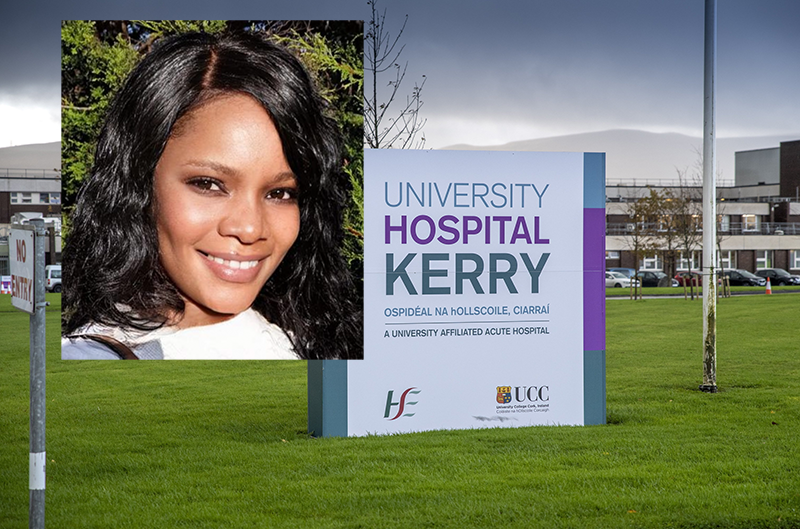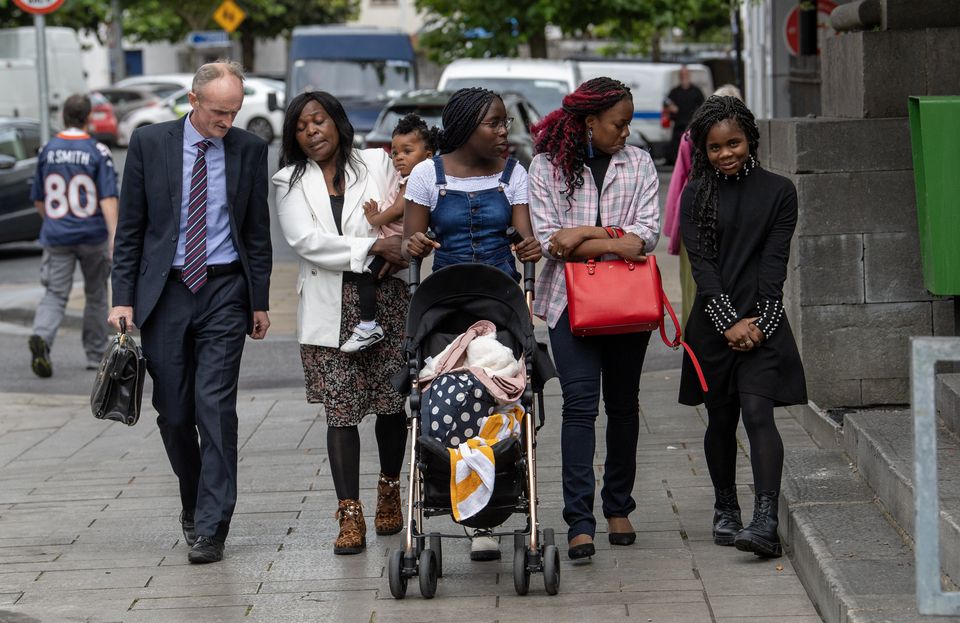- Diaspora
- No Comment
IRELAND: Zim mum who died after childbirth in hospital suffered a ‘catastrophic bleed’

By Agencies
A mother who died after giving birth at University Hospital Kerry (UHK) last year, suffered ‘haemorrhage and shock’ arising from a very rare arteriovenous malformation (AVM) following a caesarean section, her inquest has heard.
Tatenda Faith Mukwata (34) died just hours after giving birth at UHK on April 21, 2022. Originally from Zimbabwe, she sought asylum in Ireland and was resident of Atlantic Lodge in Kenmare when she gave birth to her fourth daughter and died some hours later.
The inquest into the maternal death opened at Tralee Coroner’s Court on Wednesday where evidence was heard from Dr Margot Bolster and Pathologist Dr Peter Kelehan.
The family’s legal team said said they are “very concerned about what happened between the baby’s delivery and Tatenda’s death”.
Her family attended the inquest including her mother Catherine and her children. Her daughter Rutendo confirmed to the court that she had identified her mother to gardaí after her death. She had given birth to her daughter at around 7.48pm that evening and died in the early hours of the following day.
Assistant State Pathologist Dr Bolster carried out the autopsy on April 26, 2022, and said it was ‘indisputable’ that Ms Mukwata died as result of a haemorrhage post delivery. This, she said, was a result of arteriovenous malformation (AVM) which led to a ‘catastrophic bleed’.
AVMs are tangles of blood vessels that cause irregular connections between arteries and veins.
Dr Bolster said there was no evidence of infection, sepsis or trauma to the body. Two litres of blood were found in the abdomen area – normally there are five litres in the whole body, the inquest was told.
Senior Counsel Dr John O’Mahony and Junior Counsel Elizabeth Kelleher, instructed by solicitor Conor Murphy, represented the family at the inquest hearing.
Dr O’Mahony said an AVM was ‘rarely found’ but that in cases where it was found, patients normally bleed long after the caesarean section not immediately. He said that his research indicated that it would be normally weeks or months later but no case citied in studies occurred immediately after the caesarean and he questioned Ms Bolster as to how many cases existed where an AVM led to bleeding occurring immediately after a caesarean.
Dr Bolster agreed that it was an ‘extremely rare event’.
Dr O’Mahony SC said there was evidence on the night of a ‘dramatic fall in blood pressure’ of Ms Mukwata which he said indicated that there was a haemorrhage taking place. He said her blood pressure reading was 106/52 at around 21.20pm and was 64/44 at 23.25pm later that night – a ‘dramatic and troubling blood pressure’.
“The family are concerned that there was ample opportunity for the hospital to carry out appropriate measures to arrest the haemorrhage,” he said.
Dr O’Mahony also said hemoglobin readings were also very low and ‘inconsistent with life’.
Dr Bolster said she could not answer questions on clinical care that night.
Dr Peter Kelehan also gave evidence that there were abnormalities in blood vessels. He said this is rare and is brought about when an artery and vein close together are punctured or crushed and allow blood to flow from one to the other.
He told the inquest that Ms Mukwata had the AVM before her pregnancy and that it led to a haemorrhage and led to the patients death. He said the first one he saw in the uterus was in 1989 but the patient was saved in that case. He agreed that it was a very rare case but that it does happen that bleeding occurs immediately after.
The inquest into the death has been adjourned to Monday, September 25 where several days have been set aside if needed.

